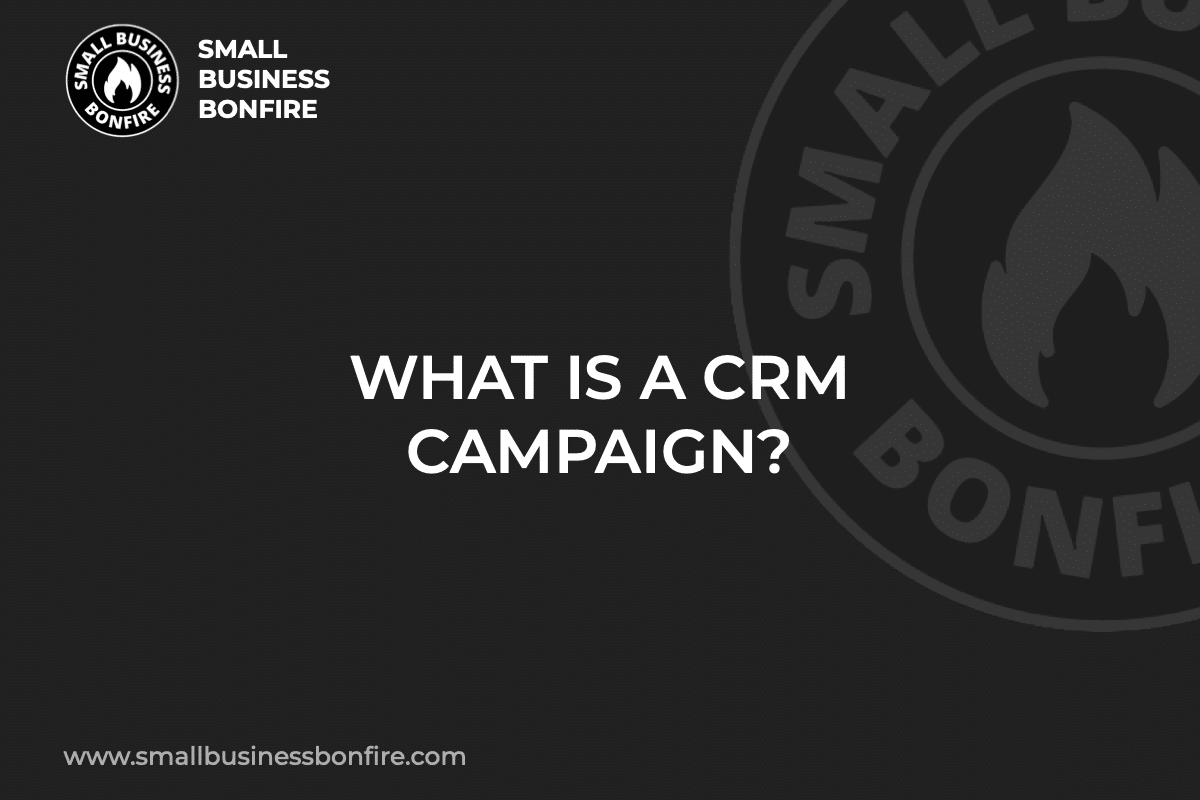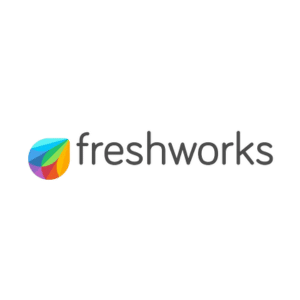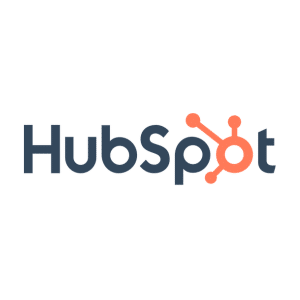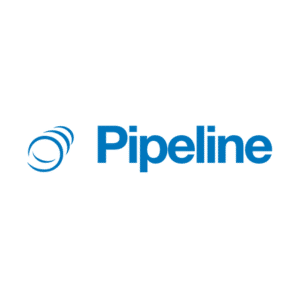Is your company successfully utilizing CRM software, but you’re searching for ways to improve your customer relationships?
CRM campaigns are the ideal way to target customer segments to nurture and build your company’s relationships with its customers.
My name is AJ. I’ve recently sold my company for seven figures. Running effective CRM campaigns was an integral piece of my business’s success.
How do you start building a CRM campaign? I’ve created this guide for small business owners like yourself to ensure you have all the information you need!
Let’s dive into utilizing CRM technology to connect with your customer base!
Key Takeaways
- A CRM campaign builds relationships with current customers while discovering new leads, boosting sales and brand awareness.
- The benefits of a CRM campaign include more team collaboration, task automation, sales and marketing campaign optimization, and customer data centralization.
- Campaigns gather relevant customer data to help marketing and sales professionals develop strategies that target your primary audience.
- Setting objectives and goals before starting a CRM campaign ensures you and your team stay on track and under budget throughout the marketing and sales process.
Related Reading: CRM for Small Businesses
SBB Featured Partners
What is a CRM (Customer Relationship Management) Campaign?
A customer relationship management (CRM) campaign is a company’s specific events and actions to build relationships with its current leads and customers within the CRM system.
There are two kinds of campaigns: marketing and sales campaigns (I’ll go further in-depth in the next section).
Put simply; a CRM campaign collects customer information that businesses can later use to improve targeting. In the end, this helps convert leads to customers.
What are CRM Marketing Campaigns?
CRM marketing campaigns are a company’s strategies to hone in on its target audience.
Companies develop a marketing strategy based on their CRM software’s valuable customer insights.
Such insights include customer preferences, location, needs, and interactions with the company.
Understanding how to utilize customer insights and data is an essential skill you must learn. Correctly using this data leads to more sales, better marketing efforts, and more team efficiency.
Marketing CRM Campaign Examples
Some examples of marketing campaigns include the following:
- Emails
- Short message service (SMS)
- Blog posts
- Social media
- Promotional materials
- Online advertising
Remember, each of these marketing initiatives is better suited toward a different customer segment.
For example, if you want to target younger generations, using social media and short message services is ideal because most of this group has smartphones and access to social media platforms.
What are CRM Sales Campaigns?
CRM sales campaigns are strategies and techniques companies use to convert leads into paying customers.
Sales teams utilize CRM data about their sales funnel to identify weak spots and streamline the customer journey.
Additionally, CRM automations allow sales reps to focus more time on connecting with their clients and less time performing mundane tasks like data input and creating proposals.
Sales CRM Campaign Examples
Examples of sales campaigns include cold and warm call outreach.
Sales campaigns involve connecting with your customer base and determining their interest in your products and services.
Therefore, it’s practical to gain immediate insight into their interest level.
Benefits of a CRM Campaign
You may be wondering why customer relationship management campaigns are so important. I admit I had the same thought when initially implementing my CRM.
However, the advantages of sales and marketing campaigns cannot be understated. Below I’ve listed the main benefits of these campaigns!
Team Collaboration
First and foremost, a CRM campaign encourages more collaboration.
Why?
CRM marketing campaigns offer the following metrics:
- Data Sharing
- Task management
- Project management
- Team communication features
With these tools, your sales team can coordinate and collaborate more efficiently on marketing efforts. And collaboration promotes team building, creativity, and more effective marketing messages.
Leaving certain team members in the dark is never a good idea, negatively impacting company culture.
Task Automation
Another benefit of CRM marketing campaigns is automation.
Your CRM system allows you to automate the following tasks:
- Workflows
- Customer journey-related tasks
- Routine tasks for marketing teams
- Campaign deployment
- Social media content
Marketing automation saves time and allows your team to focus more on ideas and less on performing routine, repetitive tasks.
Campaign Performance Optimization
CRM marketing campaigns allow you to make adjustments and optimize your marketing initiatives.
For instance, CRM systems provide data on key performance metrics, such as:
- Conversion rates
- Customer lifetime value (CLV)
- Customer acquisition cost (CAC)
- Engagement levels
- Ad click-through rates (CTRs)
Using this data, you can determine which campaigns performed well and which ones need improvement, allowing you to adjust your marketing efforts accordingly.
Customer Data Centralization
A significant advantage of CRM software is that all the customer data you need is in one system.
Therefore, marketing teams can monitor marketing channels and campaigns from one location instead of switching back and forth between software systems.
Customer data centralization ensures everyone can access the same information without data silos.
Data silos are blocks of information that specific departments or team members don’t have access to. As you can imagine, data silos result in an altered view of the customer journey.
Additionally, centralization keeps customer interactions and information organized and secure.
Creation of Personalized Content
CRM systems allow you to create personalized content for each customer segment.
CRM marketing campaigns provide insights into customer behavior and interests using data from your customers’ journey.
Armed with this knowledge, you can create tailored messaging that resonates with the right audience.
Creating personalized content is highly effective in social media marketing.
Key Features of a CRM Campaign
There are four key features every CRM campaign must focus on.
These features develop marketing and sales activities for lead generation, brand awareness, nurturing, and conversion.
Campaign Automation
The first thing a CRM campaign needs is automation.
Automated tasks save time and allow your team to focus on more critical aspects of a marketing campaign.
For example, your marketing team can use campaign sequence builders to automate the following things:
- Content deployment (sending messages, social media content, etc.)
- Redeployment
- Customer journeys
One way my team utilized automation was through CRM email marketing campaigns. We scheduled the emails we would send to customers at the start of the month, saving a lot of time for other tasks.
Audience Segmentation
Audience segmentation allows you to separate your current customers into groups and develop marketing strategies based on their attributes.
For example, you can use your CRM solution to create customer lists based on the following metrics:
- Lead score
- Brand engagement history
- Customer characteristics
- Demographics
Then, you can use these marketing metrics to develop outreach campaigns that resonate with your target market.
Software Integrations
CRM campaign features would only be complete with third-party integrations. Software integrations provide your CRM platform with more functionality and data synchronization.
Some popular kinds of integrations I’ve used for CRM campaigns include the following:
- Email tools
- Phone systems
- Social media platforms
- Project management systems
These third-party applications collect valuable customer information you can use for current and future campaigns.
CRM Insights
You must take advantage of CRM insights to run a successful CRM campaign.
Your CRM system provides valuable data and analytics related to your customer base. And using this information leads to better conversion rates and customer satisfaction.
CRM insights provide data from your marketing initiatives, sales funnel, and employee behavior.
How to Create a CRM Campaign
Now that you understand the benefits and integral CRM campaign features, it’s time to learn how to create an effective campaign.
I’ve used this five-step process numerous times, so I know it will work for you and your team!
Step 1: Define the Campaign Objective
The first step to using CRM for marketing campaigns is defining your objectives.
Defining objectives is crucial because it ensures you and your team stay on track when making future decisions.
Common CRM Campaign Objectives
Below I’ve listed the most popular CRM campaign goals so you get an idea of where to start!
- Increase Email Subscribers
Many companies strive to increase the number of people subscribing to their email lists.
These subscribers allow you to form targeted campaigns and gather valuable customer data for your marketing platforms.
- Increase Social Media Engagement
Social media is becoming increasingly popular, and businesses connecting with their audience on these platforms develop deeper customer bonds.
Additionally, social media engagement shows you which marketing materials work best, ensuring you optimize campaigns accordingly.
- Decrease Customer Acquisition Cost
CRM campaigns allow you to identify customer trends and target customers more effectively.
Decreasing the money spent acquiring new customers can maximize your ROI and grow your business.
- Increase Quarterly Sales
The most popular goal for any sales or marketing campaign is boosting sales.
CRMs provide data on existing customers to close more deals. Also, the software has information to acquire new customers successfully.
Step 2: Establish Campaign Goals
The next step is defining your campaign goals.
What do you hope to accomplish after the campaign has run its course?
Establishing goals ensures your team stays motivated and understands what they’re working toward.
Remember, these goals may change in the long run, so revisiting them regularly is essential.
Step 3: Create Marketing/Sales Materials
Once you know the objectives and goals of your campaign, it’s time to create the content.
Your team should use their creativity and customer data to develop materials that strike a chord with customers.
The type of content you produce depends on the campaign objectives. Still, here are some examples:
- Email marketing content
- Social media content (Facebook, Twitter, Instagram, etc.)
- Radio ads
- TV ads
Learn from your previous social media marketing techniques and analyze ways to improve your content.
Step 4: Automate the Process With Your CRM
Remember the benefits of CRM campaign automation I mentioned earlier? Here’s where that comes into play.
Automate workflows and processes that allow your team to be more productive and accomplish more important tasks.
Things like automated email campaigns and social media posts free up time, allowing marketing teams to create more content and analyze customer information in-depth.
Step 5: Measure, Pivot, Repeat
The last step is to measure and track your campaign metrics.
Analyze customer responses, lead conversions, and other data points to understand if you’re meeting objectives.
If not, don’t be afraid to make changes or pivot the course of the campaign. After all, what’s the point in continuing to run unsuccessful marketing strategies?
CRM campaigns require regular updates and adjustments as your customer base changes, so assessing progress continually ensures you’re staying on top of your efforts.
One practice I found helpful was having bi-weekly meetings with my marketing team to discuss the data and areas of improvement.
Staying on top of data collection and marketing analytics ensures you stay within your marketing budget constraints.
CRM Campaign Examples
You almost have all the information about CRM campaigns you need: benefits, key features, and steps to create your own campaign.
Now I’ll outline the types of campaigns you can manage through a CRM. These campaigns are divided into three categories.
Let’s look at each of these categories in-depth!
ToFu: Top-Of-Funnel Campaign
Top-of-funnel campaigns target prospective buyers who don’t know about your business (yet) and therefore haven’t engaged with it.
The purpose of these campaigns is to secure leads into your sales and marketing funnel. The goal is to nurture these leads later and turn them into qualified prospects.
What advertising objectives are most effective at this stage? Here are some examples:
- Blog posts and articles (how-to guides, listicles, analysis pieces, content to educate customers)
- Social media content (pictures, videos, and written content to promote your business and give customers updates)
- Webform landing pages (a page on your website with a form for customers to submit contact information for further messages)
- Mass email introductions (initial emails distributed to the contact list to introduce your brand or promotion)
- Phone introductions (cold calls with prospects that might be a good fit for your business)
- Infographics (One to three-page pieces that use limited content to highlight stats and brand missions)
Your business doesn’t need to use all of the previously listed advertising techniques; stick to the ones that prove most effective.
MoFu: Middle Of Funnel Campaign
Middle-of-the-funnel campaigns target the audience who already has knowledge about your brand because they submitted a web form or interacted with it on social media.
This group has expressed interest in your company, so it’s time to use personalized campaigns to nurture leads and develop relationships more.
At this stage, the following types of campaigns are most effective:
- Case studies
- E-books and whitepapers
- Podcasts
- FAQ landing pages
- Webinars
- Phone follow-ups
BoFu: Bottom Of Funnel Campaign
The last stage in a CRM campaign is the bottom of the funnel.
At this stage, you want to push prospects to consider or confirm buying from your business because these are the people who expressed interest in your products or services.
Some campaign methods that work best at this stage include the following:
- Solution brief or comparative analysis
- A free demo or trial offer
- Promotional discount offer
- Client or customer testimonials
What's Your Next CRM Campaign?
A CRM campaign is an effective way to nurture the relationships your company has with existing customers and discover new leads.
By implementing an effective CRM campaign, your team gains more knowledge about your target audience, improves team collaboration, and works more efficiently thanks to automation.
What strategies does your company use for its CRM campaign? Let us know in the comments section!
Good luck implementing your next CRM campaign!
Newsletter Signup
Join The Leads Field Guide Newsletter for tips, strategies and (free) resources for growing your leads, and closing more deals.




